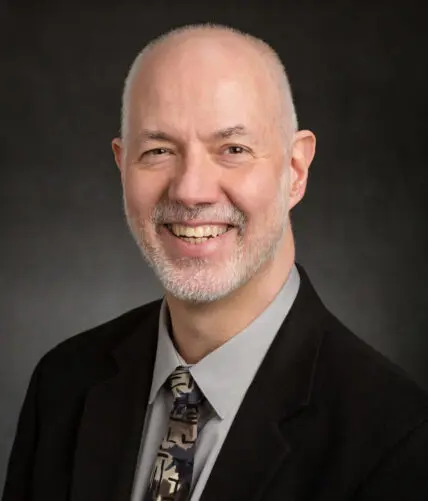What is Education’s Role in Fostering Responsible Belief?
by Sharita Forrest, Illinois News Bureau / May 6, 2025

Nicholas Burbules is the Gutgsell professor emeritus of Education Policy, Organization & Leadership at the University of Illinois Urbana-Champaign, whose primary research areas include the philosophy of education, the ethics of communication, and technology and education.
He is the author of recent papers that explore the communicative “virtues” that support productive discourse and challenge the societal trend toward anti-critical thinking
Burbules spoke about the role of education in fostering “responsible belief” with News Bureau research editor Sharita Forrest. Education’s fundamental purpose includes promoting communicative virtues such as empathy, open-mindedness, and truthfulness, and providing opportunities for students to learn from and work with people of differing cultures, backgrounds, and perspectives, Nicholas Burbules wrote in two recent papers.
What is “responsible belief?”
 Some people are very concerned about the role that education plays in helping students develop better epistemic habits, which we call “responsible belief.” That is, your beliefs are responsive to facts; to considering a range of different hypotheses; to good, sound arguments — and to engaging with others who share differing beliefs.
Some people are very concerned about the role that education plays in helping students develop better epistemic habits, which we call “responsible belief.” That is, your beliefs are responsive to facts; to considering a range of different hypotheses; to good, sound arguments — and to engaging with others who share differing beliefs.
In many countries, certainly within the U.S., there are people who believe things that are not based in reality. They sometimes form tight-knit epistemic communities or tribes of like-minded people, often through social media, to share information that reinforces what they believe and their sense that they are right and everyone else is wrong. This produces false “knowledge” across a range of issues and affects the way we debate issues in political spaces.
The American philosopher John Dewey said that the key to a healthy democracy is that you don’t talk just with people who agree with you; you also talk with those who don’t. If you have a different view, maybe it’s to my benefit to hear you out. I still might not agree, but I understand your position and the reasons behind it. The willingness to do that and the forums in which we can do that are disappearing.
What is education’s role in fostering responsible belief?
A central requirement of education, especially higher education, is learning how to reach out and understand each other across our differences. It’s about being exposed to diversities — of political, religious or non-religious views; different identities, languages and cultures — and learning to deal with them productively by talking, listening and trying to understand and empathize.
That doesn’t make the differences or disagreements go away, but it frames them as things we can learn from, as opposed to “Why should I talk to people like you when I’ve already decided that I’m right and you’re wrong?” That’s not good for society or democracy, and it’s especially not good for education.
You wrote that the current societal climate is actively hostile to critical thinking. What are the red flags indicative of such a trend and the effects?
There is a concerted effort to promote false information and an anti-critical thinking ethos. There is a belief that facts don’t matter or that the fabrication of “alternative facts” is an acceptable political strategy.
We have also seen a trend toward anti-intellectualism. In 2012, conservatives in Texas adopted a platform calling for a ban on teaching critical thinking but reversed it two years later. Today’s attacks on diversity, equity, and inclusion initiatives or critical race theory come from a similar place. Many people don’t want certain kinds of difficult but important questions to be asked in schools.
We are seeing systematic assaults on and attempts to undermine reality-based institutions such as higher education, fact-based journalism and scientific research in order to blunt their legitimacy and discredit claims that make some people uncomfortable.
A recent example of this was the rejection of medical experts’ safety advice during the COVID-19 pandemic.
What are the challenges for education and scholars in the current social and political climate?
Among some parents and societal groups we are seeing a pulling back from the idea that education is where this engagement with diverse voices and perspectives needs to happen.
You identified three clusters of interrelated communicative practices — listening, speaking, and being reasonable, which you call “virtues”. How do these virtues shape discourse in the classroom and in society?
The kinds of engagements that we want to cultivate in education depend on certain communicative practices — good habits, you could say — that need to be learned and practiced consistently. Communication is not just an exchange of information; it’s also about building relationships and changing how we perceive and treat each other.
For that reason, communication has a strong ethical component. Open-mindedness and empathy are ethical commitments — a better way to engage with each other as people and as citizens who respect and care about each other. Lying isn’t bad only because it is sharing false information; the liar shows a fundamental contempt for other people.
These ethical obligations are a big part of why these communicative goals are important. They are better ways of pursuing knowledge and of treating each other as fellow human beings, as common citizens within a democracy and as fellow students in a classroom.
Sometimes we don’t talk enough about that ethical dimension. We only see communication as a means to an end.
This article was originally published by the Illinois News Bureau.